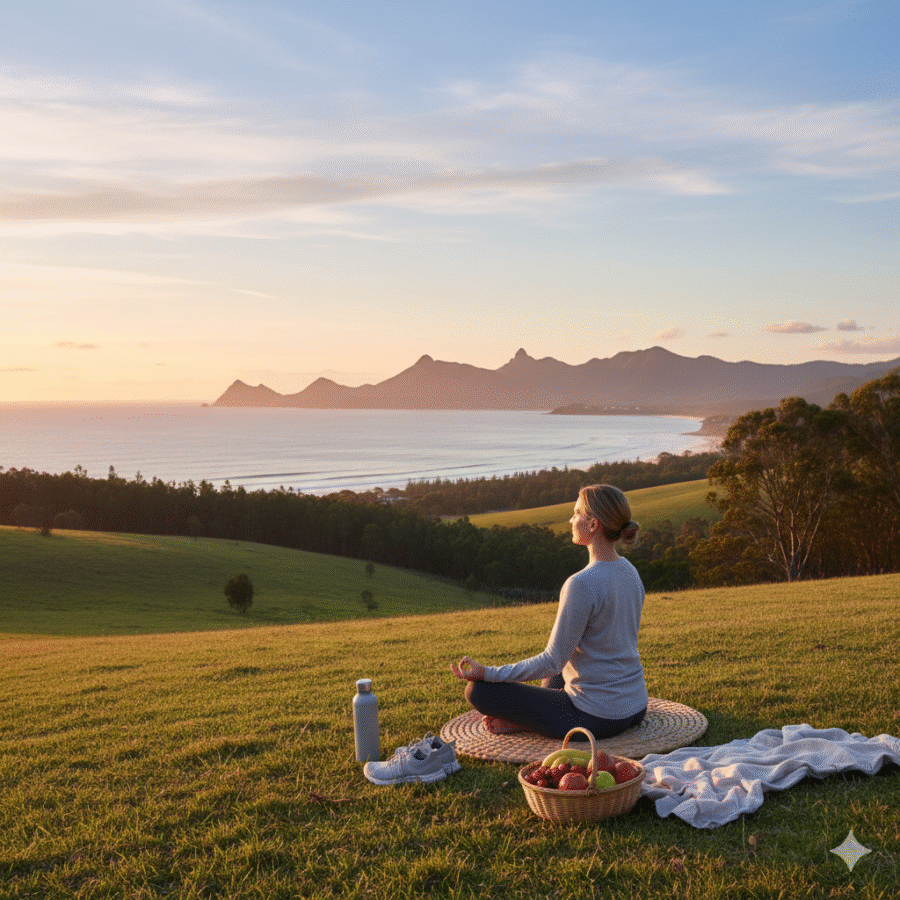In today’s fast-paced world, stress and anxiety have become part of everyday life—especially in Australia, where long working hours, financial pressure, and lifestyle challenges take a toll on both physical and mental well-being. Whether it’s work-related tension, personal worries, or the endless digital distractions we face, managing stress has never been more important for overall health and fitness.
Let’s explore the top ways to reduce stress and anxiety so you can enjoy a healthier, happier life in Australia.
1. Understand the Root Causes of Stress
Before you can effectively reduce stress, it’s essential to understand where it comes from. For many Australians, stress is influenced by several key factors:
- Genetics and personality: Some people are naturally more prone to anxiety due to inherited traits.
- Lifestyle and coping habits: Poor diet, lack of exercise, or excessive screen time can worsen stress levels.
- Past trauma: Experiences from childhood or earlier stages of life can manifest as emotional triggers in adulthood.
Recognising what causes your stress is the first step toward managing it effectively. Awareness allows you to make better lifestyle choices that support both mental and physical health.
2. Get Physically Active Every Day
One of the most effective ways to reduce anxiety is through physical activity. Exercise releases endorphins—your body’s natural mood boosters—that help improve focus, energy, and overall happiness.
You don’t have to spend hours at the gym. Simple activities such as:
- A 30-minute brisk walk in your local park
- A light morning jog by the beach
- A quick home workout session
can make a noticeable difference to your mood and fitness levels.
Australia offers incredible outdoor spaces, from beaches to hiking trails, so take advantage of them. Regular exposure to sunlight and fresh air naturally reduces stress hormones and promotes relaxation. Make movement a non-negotiable part of your day.
3. Eat a Balanced and Healthy Diet
A healthy diet not only benefits your physical body but also has a powerful impact on your mental state. Foods rich in omega-3 fatty acids, magnesium, and vitamin B help stabilise mood and reduce symptoms of anxiety.
Try to include:
- Leafy greens such as spinach and kale
- Fruits and nuts like bananas and almonds
- Whole grains, legumes, and lean proteins
- Fish and plant-based fats like avocado
Avoid overindulging in fast food, sugary snacks, and processed meals. While the occasional treat is fine, making these foods part of your regular routine can increase your risk of obesity, diabetes, and heart disease—all of which contribute to higher stress levels.
Think of these indulgences as occasional rewards rather than everyday meals.
4. Limit Screen Time and Digital Overload
Australians spend an average of several hours per day on smartphones, tablets, and computers. While technology is useful, too much screen time can increase anxiety and disrupt sleep cycles.
The blue light emitted from screens affects your body’s natural sleep rhythm. To maintain better mental and physical health:
- Turn off digital devices at least two hours before bed.
- Avoid checking social media late at night.
- Use “Do Not Disturb” or digital detox apps to manage notifications.
Instead of spending your evenings scrolling, try reading, journaling, or meditating. These simple habits can calm your mind and prepare your body for restful sleep.
Avoid caffeine and energy drinks close to bedtime, as they can delay sleep and increase restlessness.
5. Try Relaxation Techniques and Natural Remedies
Managing stress isn’t just about cutting out bad habits—it’s also about introducing calming, healthy routines. Relaxation techniques such as deep breathing, yoga, and mindfulness meditation are proven to reduce anxiety and improve emotional balance.
You can also explore natural methods such as:
- Aromatherapy using lavender or eucalyptus oils
- Regular massages to relieve muscle tension
- Herbal teas like chamomile or green tea
- Visiting a local smoke shop where legal cannabis-based products may assist with stress management (ensure these are legally approved in your area)
Incorporating these natural remedies into your lifestyle can promote calmness and emotional stability without relying solely on medication.
6. Find a Hobby That Brings You Joy
Engaging in activities you genuinely enjoy is a powerful way to combat stress. Hobbies allow your mind to shift focus away from worries and toward something fulfilling and creative.
Whether it’s painting, gardening, cooking, or playing a sport, spending time doing what you love provides mental relaxation and a sense of achievement.
Australians often find comfort in outdoor hobbies such as surfing, cycling, and hiking. Not only do these activities strengthen the body, but they also refresh the mind and encourage social interaction—both of which are essential for mental health.
7. Prioritise Rest and Quality Sleep
Sleep is one of the most overlooked aspects of stress management. Without proper rest, your body and mind cannot recover from daily pressures. Poor sleep leads to irritability, fatigue, and reduced focus, making it even harder to manage anxiety.
Aim for 7–8 hours of quality sleep each night. Create a calming bedtime routine, keep your room cool and dark, and maintain a consistent sleep schedule—even on weekends.
Avoid screens, caffeine, and heavy meals before bedtime. A short relaxation session or reading a book can help you unwind naturally and fall asleep faster.
Conclusion: Take Control of Stress for a Healthier You
Stress and anxiety are unavoidable parts of life, but they don’t have to control you. By adopting a balanced lifestyle—one that includes exercise, proper nutrition, adequate sleep, and mindful relaxation—you can significantly improve your overall health and fitness.
Remember, reducing stress isn’t about perfection; it’s about consistency. Even small daily changes can create lasting improvements in your mood, energy levels, and physical well-being.
Start today by taking one positive step toward calmness and balance. Your mind and body will reward you with better health, more energy, and a greater sense of happiness.










